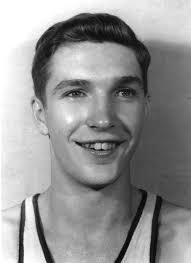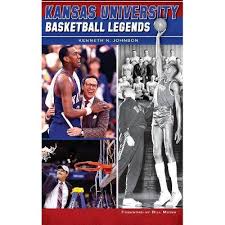The NBA Finals date back to 1947 (when they were known as the Basketball Association of America Finals) and the very 1st NCAA tourney was held in 1939. Olympic basketball competition is even older: it debuted as a demonstration event in 1904 and the men’s version became a medal sport in 1936, with the women finally getting their chance to go for the gold in 1976. The United States has dominated Olympic basketball competition from the start: the men have won 15 gold medals in the 18 tournaments they have participated in during the past 84 years, while the women have won 8 gold medals in the 10 tournaments in which they have competed during the past 44 years. Those of you who were looking forward to the 2020 Olympics opening ceremonies in Tokyo on July 24, 2020 will have to wait an extra 364 days, as the coronavirus caused a postponement until July 23, 2021. Due to the absence of college basketball since mid-March, HoopsHD’s Jon Teitel decided to fill the void by trying to interview as many prior Olympic players/coaches as possible so that you have something to read this summer while not watching the Summer Games. We continue our coverage by chatting with Dr. Kenn Johnson, Kansas alum and author of multiple books about KU basketball, about Bill Hougland winning a pair of gold medals in 1952/1956.
Bill was born in Kansas where he won the Class A state championship as a senior at Beloit High: what made him choose the Jayhawks? Bill excelled in sports and led his high school team to the Class A championship game in 1948. He was heavily recruited by many colleges to play basketball. With a heavy-handed recruiting pitch, KU coach Phog Allen promised Hougland that if he came to Kansas then KU would win the national championship and go to the Olympics after his senior year in college. It was a promise that Allen kept.
What made Allen such a great coach, and what was the most important thing that Bill ever learned from him? While Phog’s technical competence was extraordinary, I believe that his greatest asset was his ability to motivate players/establish a winning attitude. After the 1952 NCAA title win Phog wrote a letter to his players saying, “30 years from now your struggles and your successes will be rolled into a fine philosophy of life which will give you durable satisfactions.” Hougland was satisfied with his life to the very end.
In the 1952 NCAA title game he scored 5 PTS in a win over St. John’s: what did it mean to him to win a title? First of all, it gave him the opportunity to play in the Olympics, where he was an outstanding player during the 1952 Games. His clutch play in the finals against Russia led the US team to win the gold medal 36-25. On their way back from Helsinki Hougland told Phog, “Doc, what our team has accomplished this season proves that if you work hard enough at anything you can get the job done. I am proud of what I accomplished but this just puts into perspective how many athletes at the university did so well and helped promote the tradition that we have here.”
Instead of joining the NBA he spent several years playing for the Phillips 66 AAU basketball team: why did he make that decision, and did he have any regrets? In the early 1950s playing semi-pro AAU basketball was a viable alternative to the NBA, as the pay was almost the same. AAU players had the advantage of obtaining business experience and connections in addition to playing ball. Hougland gained considerable business knowledge/skills during his stay with Phillips 66 and he never expressed any regrets at having the opportunity to play for another gold medal.
He won his 1st gold medal at the 1952 Olympics (as 1 of 7 Jayhawk players, with Allen serving as assistant coach) and was team captain at the 1956 Olympics: how big a deal was it for him to become the 2nd basketball player to ever win 2 gold medals? Bob Kurland was the 1st, winning gold medals in 1948/1952. After Hougland there have been other stars to win multiple gold medals (including Michael Jordan/Jason Kidd). Nonetheless, at the time Bill was honored both nationally and certainly at KU, as he was named to the Kansas Sports Hall of Fame.
He was later drafted into the Air Force and served in Japan for multiple years: what impact did his service have on his life? Upon returning from the Olympics he served his country in the Air Force. While stationed in Japan he was asked to compete on a basketball team at his Air Force base. He saw it as a great way to build relationships with his fellow soldiers overseas and he took pride in his service to our country.
He left the Phillips Petroleum Company in 1961 and went to work for Koch Industries for 30 years before retiring in 1991 as president of Koch Oil: how was he able to follow his on-court success by becoming so successful off the court? His education at KU and his business experience at Phillips/Koch Industries gave him the knowledge/ability to be successful and eventually become president of a major oil industry corporation.
In 1993 he and his wife Carolie donated more than $1 million to benefit the Kansas athletic department/School of Business/Alumni Association/Helen Foresman Spencer Museum of Art: how important was the school to him, and how important was he to the school? As a student at KU he received an excellent education and a business degree, as well as achieving the level of basketball skill that gave him the opportunity to play AAU ball after graduating. Subsequently, as a member of KU’s Board of Advisors and through his significant financial contributions, his efforts have benefitted both students/faculty by producing dynamic curriculum innovations. He was especially proud that all 5 of his children and several of his grandchildren also graduated from KU.
When people look back on his career, how do you think that he should be remembered the most? He was a success both on and off the court. At KU he helped the Jayhawks win the NCAA championship, then helped team USA win 2 Olympic gold medals. He served his country as a military officer and after retiring from basketball he worked his way up to President of Koch Oil before retiring in 1991. His obituary states, “He was kind to all and smiled with a twinkle in his eye”: what a legacy!




